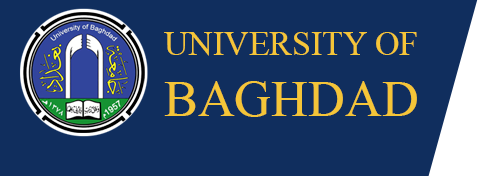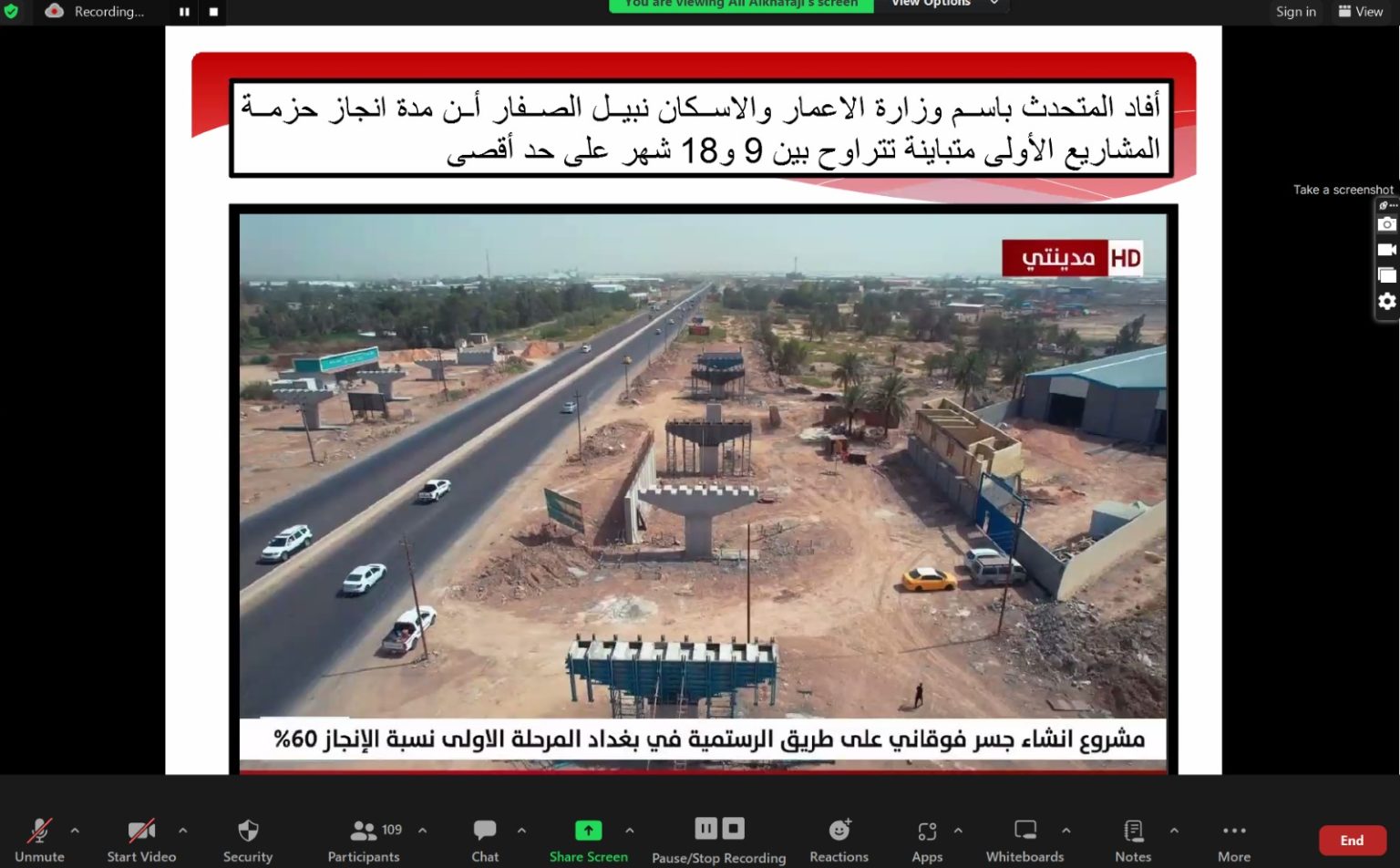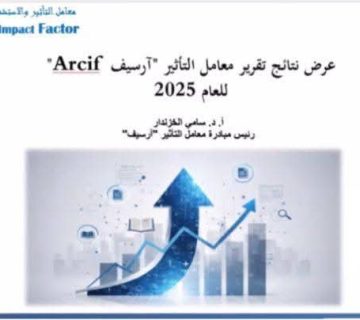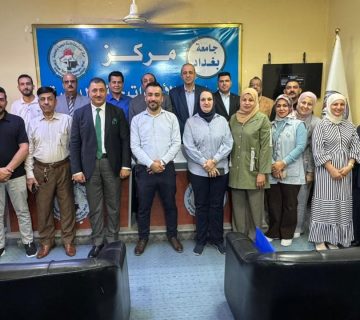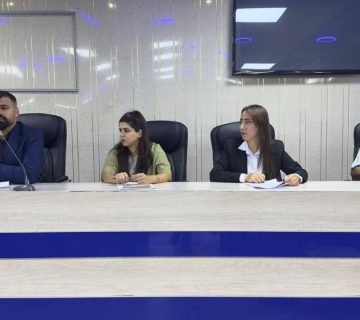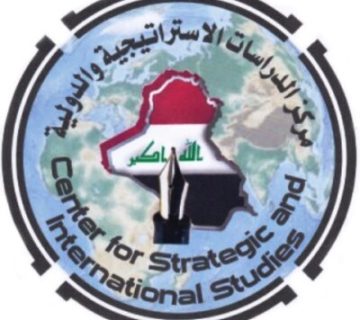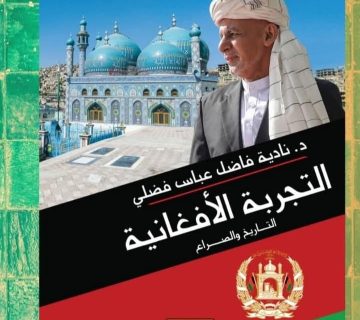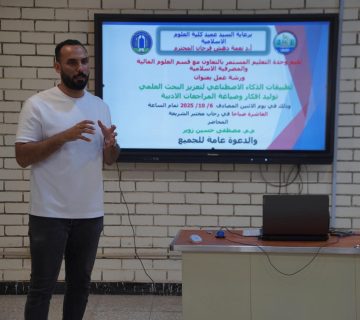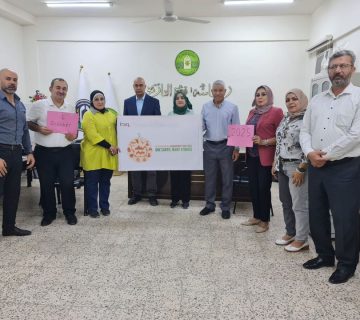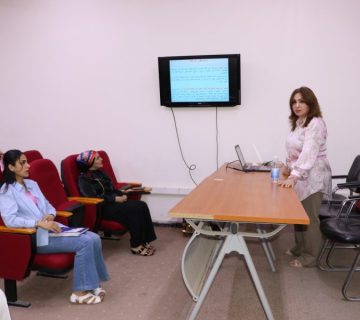Ibn Sina Center for E-Learning at the University of Baghdad held a scientific symposium entitled (The traffic crisis and its effects on sustainable development and the impact of changing official working hours). Engineer Ali Saif Al-Din Obaid and the assistant translator of Bilqis Haqqi presented the symposium.
The seminar aimed to introduce the traffic crisis and its effects on sustainable development in terms of its economic, social, and environmental dimensions. The assistant translator Bilqis Hakki explained the causes of the traffic crisis and identified them among reasons related to population density, road organization, and the culture of individuals in terms of their commitment to traffic instructions and others.
Engineer Ali Saif al-Din Obaid explained the reasons for the traffic crisis in Baghdad in particular, including the lack of use of mass transportation, the lack of parking lots, the mismanagement of the road network, etc. The researcher also touched on the projects to break traffic jams that Baghdad is currently witnessing, explaining the positive results that will result from them.
In conclusion, the researchers called in the symposium to conduct an analytical study of the traffic crisis in terms of the annual increase rate of the number of vehicles and the timetable for road development projects, and the need to accelerate the construction of the subway because of its definite impact on reducing the number of buses, cars and taxis and encouraging the mass transport system, as well as studying the pros and cons of moving some headquarters of government institutions and ministries outside the crowded areas (outskirts of the capital).
